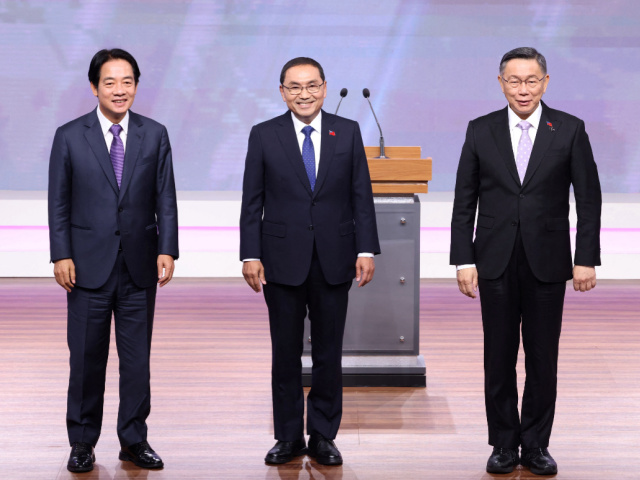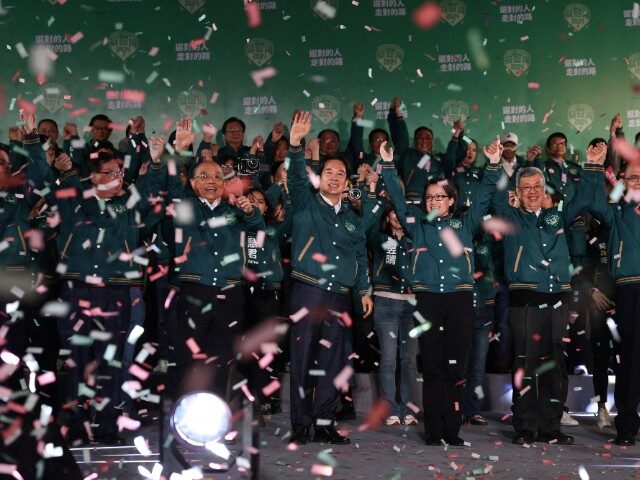Anti-communist Democratic Progressive Party (DPP) candidate Lai Ching-te won Taiwan’s presidential election on Saturday, defeating his two leftist rivals on a campaign emphasizing Taiwan’s sovereignty in the face of mounting threats from China.
Lai, sometimes referred to by his Western name, William Lai, is the current vice president and the first candidate to secure a third term for a political party in the young history of Taiwanese democracy. As a former physician, Lai rose to prominence as an authority figure during the Wuhan coronavirus pandemic, during which Taiwan distinguished itself as the first nation to alert the World Health Organization – in vain – to the spread of a novel disease in China and for its performance in containing infections and preventing widespread death.
Lai will succeed current President Tsai Ing-wen in an inauguration ceremony on May 20.
The victory for Lai, and continued rule for the DPP, is also in part the result of significant changes in perceptions of Taiwanese identity on the island. Only about 2.5 percent of Taiwanese identify as Chinese – a connection maintained by language and culture, but not government structures – compared to over 62 percent who identify solely as Taiwanese. Less than half that number, about 30 percent, identify as “Taiwanese-Chinese,” according to a poll by the Election Study Center of Taiwan’s National Chengchi University, Channel News Asia reported in the last week of the election.
Taiwan – formally the Republic of China – is a sovereign, democratic island nation off the coast of China. It has never in its history been governed by a regime headquartered in Beijing and has no military, administrative, or other political ties to China. Modern Taiwan was founded in 1912 but did not become an independent state until the fall of the Japanese empire in 1945.
Lai received about 5.5 million votes, or 40.1 percent, according to national tallies from the Central Election Commission documenting 99 percent of votes at press time. Lai faced a divided opposition in the polls. Hou Yu-ih, the candidate for the establishment left Kuomingtang (KMT) party, received 33.46 percent (4.7 million) of the vote with 99 percent tallied; Ko Wen-je of the outsider Taiwan People Party (TPP) received 26.44 percent (3.6 million).

(L-R) Lai Ching-te, presidential candidate from the ruling Democratic Progressive Party (DPP), Hou Yu-ih, presidential candidate from the main opposition Kuomintang (KMT), and Ko Wen-je, presidential candidate from the opposition Taiwan People’s Party (TPP), pose for a picture during a debate in Taipei on December 30, 2023 (Photo by Pei Chen/POOL/AFP).
China loomed large in the Taiwanese presidential race – sometimes literally, as in the case of a flurry of Chinese espionage balloons floating over the country on the first weekend of the year – and disparaged Lai personally as a “separationist” who would bring China and Taiwan closer to war. Lai’s rivals, Hou and Ko, offered voters campaigns that sought more dialogue and concessions to China to avoid an invasion.
Continue reading: Breitbart.com





Leave a Reply